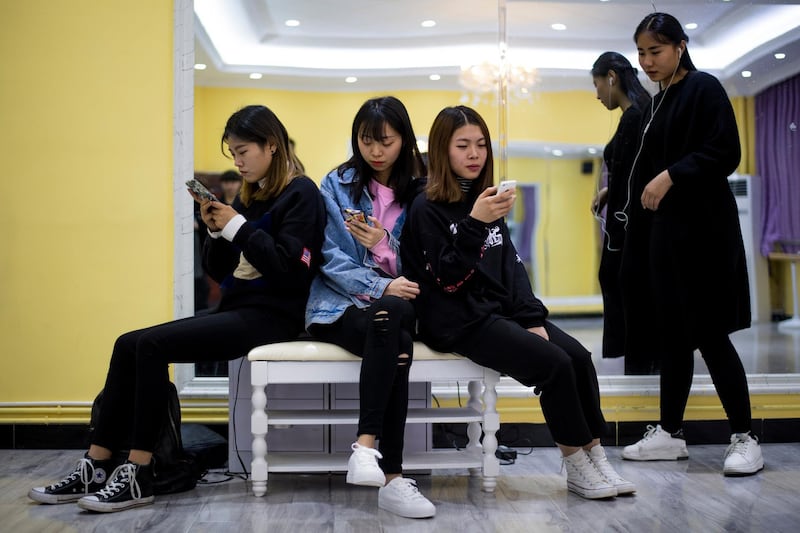“It is very necessary for the educated youth to go to the countryside and undergo re-education by the poor peasants,” Mao Zedong declared in the winter of 1968. “We must persuade the cadres and others to send their sons and daughters who have graduated from elementary school, middle school and university to the countryside.” Note the charming use of “persuade” in that totalitarian decree.
The Chinese Communist Party produced propaganda posters depicting young boys and girls with bright smiles streaming into the countryside brandishing Mao’s Little Red Book.
The “Up to the Mountains and Down to the Villages” phase of Chairman Mao’s Cultural Revolution displaced 17 million urban Chinese youths. Many, trapped in labour camps, never saw the inside of a classroom again. Families were permanently fractured. Mao, in seeking fanatically to create a new man, destroyed a generation.
That tumultuous period, observers of China tell us, is now consigned to the past. The 400 million Chinese "millennials" born between 1984 and 2002, Zak Dychtwald writes in Young China, grew up in a land "brimming with ambition and aspiration".
The country whose most desperate citizens had resorted to cannibalism to survive the Great Chinese Famine revealed the distance it had travelled from the wretched old days when it put on “probably the greatest show ever performed in human history” at the opening ceremony of the 2008 Beijing Olympics.
This was the moment, says Dychtwald, that the new and powerful China brought into being by Deng Xiaoping’s economic reforms burst on to the world stage. This new China evokes an admixture of envy, admiration and fear in the United States and the West. In 2009, the British scholar Martin Jacques published a book arguing that China was poised to rule the world; this year, the US-based author Dinny McMahon published a book heralding the “end of the Chinese miracle”.
In between, there have been dozens of books about China; very little, by comparison, has been written about the ordinary men and women who people the place.
One of the reasons for this is lack of access. China, lest we forget, is still in the grip of Mao’s party. Dychtwald entered China not as a journalist but as a student. In this lively book, he introduces us to a diverse cast of Chinese millennials he met as he travelled the country. They are all striving to distinguish themselves in a land where, as the host of a famous podcast tells Dychtwald, everyone is “like an ant in a big anthill of a gazillion people, all trying to run to the top at the same time”.
There is Bella, a woman who spends 320 hours each month in the freezing library of her university to prepare for a graduate entrance test. New wealth has given rise to strange new ideas. Consider Lily. Worried that her boyfriend might abandon her, she pays for cosmetic surgery on her eyelids to meet a “standard of beauty that didn’t exist in China a few decades ago”.
____________________________
Read more:
Book review: The tale of a Nazi collaborator who became Africa’s ‘saint’
Review: Chelsea Clinton’s latest book is not promising enough to change history
Review: 'The Land between Two Rivers' painfully conveys the human cost of war
____________________________
The young Chinese people Dychtwald meets are not politically unaware; they are, rather, indifferent. The shackles they went to be rid of are cultural. Democracy doesn’t appeal to them. Next door is India, the world’s largest democracy; China’s equal only a few decades ago, it is now measurably poorer and weaker than China.
“Chinese textbooks”, Dychtwald explains, “point out that the critical difference between the two [countries] was political philosophy.”
Do the voices in this book really represent the larger public opinion? Are Chinese millennials really comfortable with Xi Jinping’s power grab? What do the Tibetans believe? How do the Uighurs in Xinjiang feel about the transformation of China?
Answers to such questions are difficult precisely because China is still a one-party state. Young China, like Alec Ash's excellent Wish Lanterns (2016), is entertaining and edifying. It sheds sympathetic light on a people whose own past, papered over by the CCP, is inaccessible to them. They have new wealth and opportunities but no meaningful political freedom. As the novelist Yu Hua lamented in his 2012 book China in Ten Words, the young in China, unaware of their recent history, run the risk of repeating it. As if to demonstrate how little has changed politically in China, the CCP's censors banned it.






